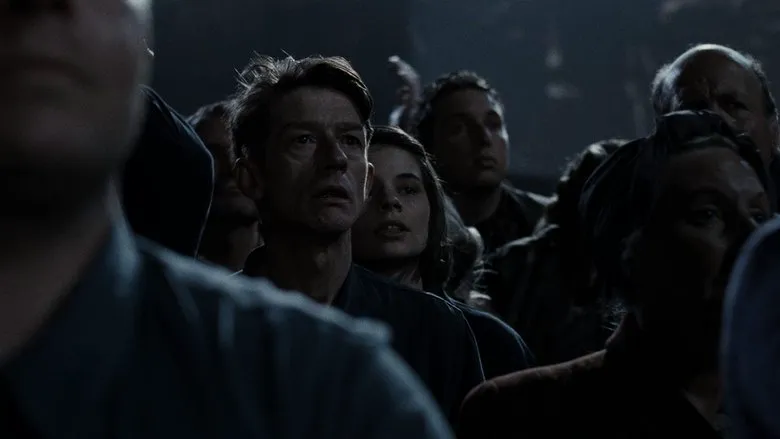Reflections on Dystopian Visions: Nineteen Eighty-Four vs. Brave New World
Having recently immersed myself in the chilling worlds of George Orwell’s Nineteen Eighty-Four and Aldous Huxley’s Brave New World, I felt compelled to reflect on their enduring power and contrasting visions of dystopian futures.
Which masterpiece reigns supreme? While both novels offer terrifying glimpses into potential futures, I personally find myself more captivated by the stark and brutal reality presented in Nineteen Eighty-Four.
The Enduring Power of Nineteen Eighty-Four
Though the title suggests the year 1984, it is often speculated that Orwell drew inspiration from 1948, simply rearranging the digits. This adds another layer to the story, hinting at the timeless relevance of its themes.
Nineteen Eighty-Four has a rich history, influencing different cultures and adapting their views. This book first reached Chinese reader’s hearts in the 1960s. Mr. Li Shenzhi found this book accidentally in a library and felt deeply, so he suggested it to Mr. Dong Leshan, who translated Edgar Snow’s Red Star Over China and put in his own 1979 first edition book. When Dong Leshan translated it in 1979 with the title Selection of Foreign Works, it was published in the Compilation and Reference supplement. Nineteen Eighty-Four made its debut to Chinese readers, initially circulating within a limited circle. Now everyone translates publishes it.
My own copy is a bilingual edition published by Yilin Press. The cover boldly proclaims, “The more people who read Orwell, the more freedom there is.” While I primarily rely on the Chinese translation, I often consult the English text for clarity. The translator, Sun Zhongxu, appears to have undertaken this project early in his career. While generally accurate, parts of the translation feel somewhat stiff because it sticks too closely to English sentence structures.
A World of Totalitarian Control
Nineteen Eighty-Four paints a grim portrait of Oceania, a society ruthlessly controlled by the omnipresent “Big Brother” and the Inner Party elite. Telescreens relentlessly monitor every citizen’s every action and thought, eradicating any semblance of privacy. Society’s rigid structure transforms individuals into mere cogs in Big Brother’s machine. They’re prohibited from expressing dissent or independent thought. The Party even controls the language via “Newspeak.” This is an ever-evolving vocabulary to eliminate words and concepts that challenge the Party’s “doublethink.” The end goal? To have it be the primary communication tool by 2050. And the staged state of war just brainwashes people. Winston Smith finds himself living in the center of this nightmare of oppression.
The narrative is concise, focused on the central characters without the sprawling scope and intricate relationships often found in classic Russian novels. Winston Smith, an Outer Party member working at the Ministry of Truth, is tasked with rewriting history to fit the Party’s narrative. He’s small and somewhat ordinary, going to Party activities and drinking during downtime. Yet, he is trying to know the Party’s true origins, and write in his diary “Down with Big Brother.” Before meeting Julia, it seemed as though his life was going to be simple despair.
Rebellion and Betrayal
Like Winston, Julia hates the Party, and the moment he sees her, they become romantically entangled. She also hates the Party but is vibrant and wild. She inspires him to experience life. They navigate with the Party watching. However, Party member and double agent O’Brien sets them up under the Brotherhood, where Julia and Winston inevitably are double crossed. Winston betrays Julia after being tortured into submission. These two are just two people trying to beat the system like in The Shawshank Redemption.
“Some birds aren’t meant to be caged, that’s all. Their feathers are too bright.”
There, in a meadow, they begin their affair. The doves want to fly to the bright sky, but Big Brother wants to keep those birds locked down. Winston and Julia’s sad tryst shows how much freedom means to those within a dictatorship, and how much they will defy it. Winston and Julia show some familiarity with Liang Shanbo and Zhu Yingtai with the sad twist of Winston betraying Julian.
The Power of Language and Thought
George Orwell, with his distinct style, leaves his reader with lines that will hit them for ages. “BIG BROTHER IS WATCHING YOU” is an eye opener in and of itself but the quote hits a deeper meaning.
War is Peace,
Freedom is Slavery,
Ignorance is Strength.
My personal favorite out of the entire book, however, is:
“Freedom is the freedom to say that two plus two makes four. If that is granted, all else follows.”
But as the book comes to a conclusion after constant torture, Winston ends up writing down, “Two plus two makes five.” “Everything faded into mist. The past was erased, the erasure was forgotten, the lie became truth.” The memory of past times become nothing within this book, and Big Brother is always watching.
Julia did not get as bad as part as Winston. She got a scar on her face because she was getting tortured as well.
The end leaves the reader wondering if Winston really died. The story has a part where Winston gets shot at the back of the head, which kills Winston’s conscious and turns him into an empty shell with no freedom or choice in the matter. It’s sad, tragic, and depressing, all wrapped up in one story. Because, for Big Brother, the only outcome for being free is to be nothing.
Because of the immersive nature given within this novel, Winston, Julia, or even O’Brien could become anyone. Anyone could be one of them when diving into its dark story.